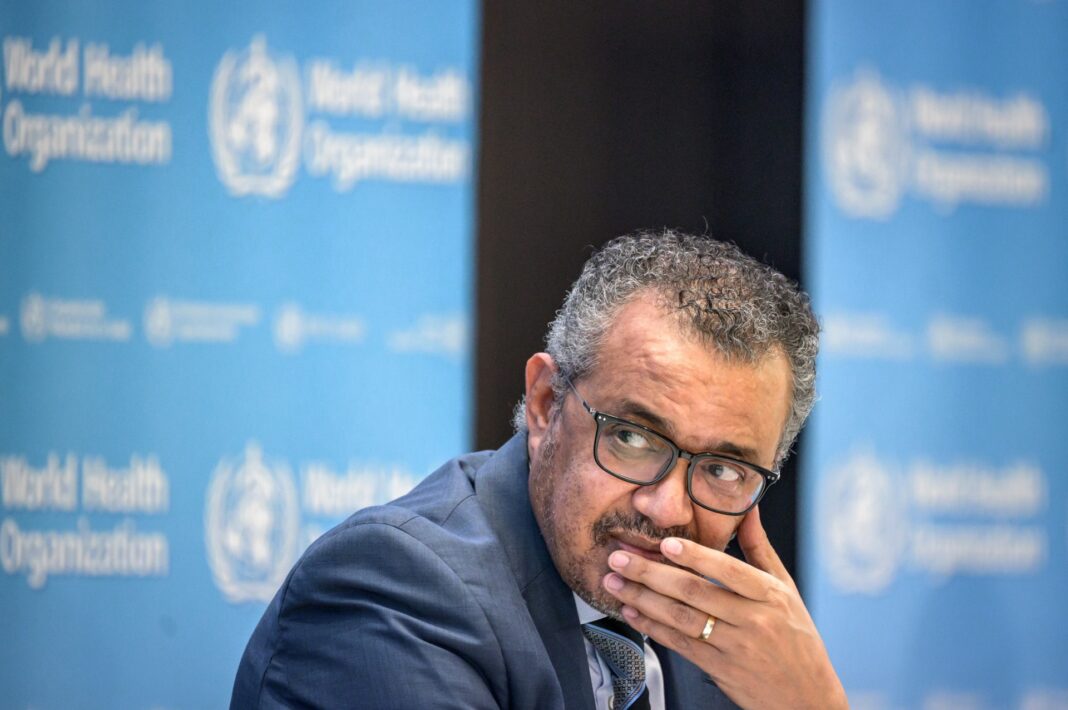By Hui Min NEO with AFP bureaus
The WHO warned Tuesday that the Omicron coronavirus variant could overwhelm healthcare systems despite early studies suggesting it causes milder disease, as China and Germany reintroduced tough restrictions to stem new infections.
Covid-19 surges have wreaked havoc worldwide, forcing many nations to make tough choices between economically punishing restrictions to control the spread of the virus and keeping society open.
The United States has halved the isolation period for asymptomatic cases to try and limit disruption, while France has ordered companies to have employees work from home at least three days a week.
Contact restrictions were in place in Germany for the second year in a row heading into the New Year, as Europe’s biggest economy shuttered nightclubs and forced sports competitions behind closed doors.
Despite facing a much smaller outbreak compared with global virus hotspots, China has not relaxed its “zero Covid” strategy, imposing stay-at-home orders in many parts of the city of Yan’an.
The hundreds of thousands of affected residents there joined the 13 million people in the city of Xi’an, who entered a sixth day of home confinement as China battled its highest daily case numbers in 21 months.
“I’m about to be starved to death,” wrote one Xi’an resident on the Twitter-like Weibo platform.
“There’s no food, my housing compound won’t let me out, and I’m about to run out of instant noodles… please help!”
Many Xi’an residents have similarly complained on social media about the restrictions, which include a ban on driving and allowing only one member of a household to go outside for groceries every three days.
This lockdown is the most sweeping in China since the similar-sized city of Wuhan was cut off from the world in the early days of the pandemic.
‘Widespread disruption’
The highly transmissible Omicron variant has propelled the surges in many countries, with the Netherlands and Switzerland both saying Tuesday that it has become the dominant strain in their countries.
France, Britain, Greece and Portugal all reported record daily case numbers on Tuesday, with France reporting almost 180,000 infections in the last 24 hours.
The WHO warned against complacency even though preliminary findings suggest Omicron causes milder disease.
Despite the studies, Omicron’s rapid growth “will still result in large numbers of hospitalisations, particularly amongst unvaccinated groups, and cause widespread disruption to health systems and other critical services”, warned WHO Europe’s Covid Incident Manager Catherine Smallwood.
To hold back the tide, European nations brought back curbs with painful economic and social consequences.
Finland on Tuesday said it would bar unvaccinated foreign travellers from entering. Only residents, essential workers or diplomats will be exempt.
The Nordic country, like Sweden, had begun requiring negative tests for incoming non-resident travellers from Tuesday, a day after Denmark — which currently has the world’s highest rate of infection per capita — applied the same measure.
In Germany, private gatherings are now limited to 10 vaccinated people — or two households where any unvaccinated people are present — and nightclubs have been closed. All sports competitions will now be held behind closed doors.
But a Belgian court thwarted Prime Minister Alexander De Croo’s plans to introduce further restrictions by suspending an order closing entertainment venues.
Travel chaos
Beyond social strife, the pandemic has been punishing economically, in particular for sectors like travel.
Some 11,500 flights have been scrapped worldwide since Friday, and tens of thousands more delayed, during one of the year’s busiest travel periods.
Multiple airlines have blamed staffing shortages caused by spikes of Omicron cases.
The surge in the US has been fuelled by the Omicron variant, as well as large pockets of unvaccinated residents and a lack of access to quick and easy testing.
But US President Joe Biden offered some respite to the travel sector on Tuesday by announcing an end to a travel ban on eight southern African countries imposed in response to the emergence of Omicron.
Biden on Monday said some US hospitals could be “overrun” but that the country was generally well prepared.
He stressed that Omicron would not have the same impact as the initial Covid outbreak or the Delta variant surge this year.
In an effort to prevent mass labour shortages during the surge, the US Centers for Disease Control and Prevention on Monday cut the isolation period for asymptomatic cases from 10 to five days.
© Agence France-Presse

